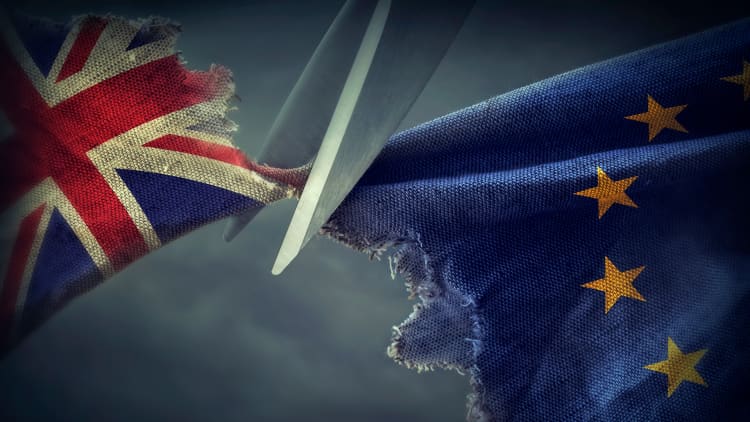
Lawmakers in the U.K. Parliament voted to reject a limited time frame for reviewing legislation related to Britain's withdrawal from the European Union.
MPs (Members of Parliament) rejected the timetable, which would have seen the Withdrawal Agreement Bill (WAB) legislation whizz through Parliament in three days, by 322 to 308 votes.
In reaction, sterling fell 0.1% versus the dollar. Prime Minister Boris Johnson said he would now pause the legislation until he had discussions with EU leaders.
European Council President Donald Tusk said following the vote that, following Johnson's decision to put the Brexit deal on hold, he would recommend that the other 27 member states of the European Union approve a delay of Britain's departure date.
Prior to the vote, many U.K. lawmakers had expressed frustration that three days was not enough time to understand the bill which runs to more than 100 pages.
The Conservative government had pushed for the timetable as it bid to hit its promise of delivering Brexit by October 31. It is also concerned that a longer period of review will result in the bill being heavily amended.
It now means that the U.K. is almost certainly not going to leave the EU on October 31 and the EU will provide an extension to prevent a no-deal Brexit occurring.
Earlier, MPs had voted, in principle, for the government's Withdrawal Agreement Bill to proceed, but now the passage of Johnson's agreement looks to be in real doubt. The Conservative government won that vote by 30 — the first time that U.K. lawmakers have, by a majority, backed any Brexit deal agreed between Brussels and London.
In response, the prime minister said he was disappointed with the delay but "one way or another we will leave the EU with this deal."
The leader of the opposition, Jeremy Corbyn, said he would offer to work with the Conservative government to agree on "a reasonable timetable."
Kill the bill?
The prime minister said earlier Tuesday that if this "timetable vote" failed to go his way, he could pull the whole legislation and instead call for a U.K. general election.
"If Parliament refuses to allow Brexit to happen and instead gets its way and decides to delay everything until January or possibly longer, in no circumstances can the government continue with this. And with great regret, I must say the bill will have to be pulled and we will have to go forward to a general election," he said.
However, a report in the FT suggested that Johnson may be open to a 10-day extension to allow MPs a longer amount of time to further review the bill.
What happens next
If Johnson can get his Withdrawal Agreement Bill through the House of Commons, it would then need to be ratified by Parliament's upper chamber, the House of Lords. That final hurdle would see Johnson's Brexit deal with Brussels last week turn into U.K. law.
Having lost a crucial vote on Saturday, Johnson has been forced to pass his withdrawal bill through the House of Commons and be accepted before MPs (Members of Parliament) give their full consent.
If MPs were to make major changes to the agreement, despite agreeing to it in principle on Tuesday, the government is also expected to pull the bill.
On Saturday, the U.K. Parliament decided not to have a clear yes or no vote on the deal that the prime minister negotiated with the EU, arguing that Parliament should first approve all the necessary legislation to leave the bloc.
A majority of parliamentarians pushed for this in order to prevent a no-deal scenario at the end of the month, as it triggered a law that meant Johnson had to request a deadline extension with the EU.

Reuters contributed to this report



